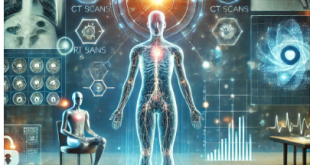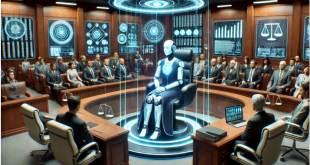Introduction
The food industry is the bedrock of human civilization, always adjusting to the changing times and consumer demand. In the last few decades, this industry has undergone an unprecedented transformation that has been shaped by technological innovations. Starting from the farm to the fork, technology is transforming how food is produced, processed, distributed, and consumed.
This blog looks at how the food industry is being changed by technology and how technology is helping to pave its way for a more efficient, sustainable, and more personalized food ecosystem.
1. Precision Agriculture: Feeding the World Sustainably
Farmers are harnessing drones, IoT sensors, and AI-powered analytics to enhance crop yields while simultaneously reducing waste of resources involved in cultivation.
Smart Sensors continuously monitor the health of soils, moisture levels, and nutrient content. Farmers can thereby make decisions based on data.
Drones and Robotics are being used for planting, spraying pesticides, and harvesting, reducing labor costs and improving accuracy.
AI and Machine Learning predict weather patterns and pest outbreaks, helping farmers mitigate risks and plan better.
These technologies not only boost productivity but also promote sustainable practices, reducing the environmental impact of agriculture.
2. Food Processing and Safety: Enhancing Quality and Trust
Advances in food processing technology ensure that products are safe, nutritious, and long-lasting.
Blockchain is revolutionizing supply chain transparency, enabling consumers to trace the origin of their food and ensure its authenticity.
Automation in factories ensures consistent quality, faster production, and reduced human error.
AI-Powered Inspection Systems detect contaminants and defects in real-time, ensuring food safety at every stage.
3. The Rise of Alternative Proteins
Alternative proteins such as plant-based meat and lab-grown meat, among others, have emerged through technology as the demand for sustainable protein sources increases.
Impossible Foods and Beyond Meat have used molecular engineering to emulate the taste and texture of traditional meat.
Cultured Meat Technology allows scientists to culture meat in labs, thus making it less dependent on animal farming and significantly reducing greenhouse gas emissions.
4. Personalized Nutrition Through Data and AI
The trend of personalized health has led to the development of technologies that tailor diets to individual needs.
AI and Big Data analyze genetic, metabolic, and lifestyle data to recommend personalized meal plans.
Food Scanning Apps like MyFitnessPal help users track their nutrient intake and suggest healthier choices.
Smart Kitchen Appliances can now recommend recipes based on available ingredients and nutritional goals.
5. E-Commerce and Food Delivery Revolution
The digital transformation of food retail and delivery services has changed how we shop and eat.
AI Algorithms predict consumer preferences, allowing online grocery platforms to offer personalized recommendations.
Autonomous Delivery using drones and robots is redefining last-mile logistics.
Cloud Kitchens powered by AI optimize operations, ensuring timely food preparation and delivery.
6. Sustainability in Packaging and Waste Management
Growing awareness about environmental issues has led to technology driving innovations in packaging and waste management.
Edible Packaging is replacing plastic with biodegradable material.
AI-Powered Waste Management Systems in food manufacturing units decrease waste through process optimization.
Apps like Too Good To Go connect surplus food with consumers. This has reduced food wastage around the world.
7. Future Trends: What’s in Store?
The food industry will likely have a lot more integration of AI, robotics, and sustainable practices in the future. Emerging technologies like 3D food printing and vertical farming are poised to revolutionize how we produce and consume food. Perhaps most importantly, the growing interest in the metaverse might bring virtual food experiences closer to us, further blurring the lines between technology and gastronomy.
Conclusion
Technology has become an integral part of the food industry, addressing food security, sustainability, and consumer demands. The food industry is not only keeping up with the times but also creating a future where food is healthier, more accessible, and environmentally friendly by embracing innovation.
Whether it is the precision of AI in farming or the convenience of food delivery apps, technology continues to enhance every bite we take. As we move forward, it’s clear that the fusion of tech and food will play a critical role in shaping a sustainable and efficient global food system.


